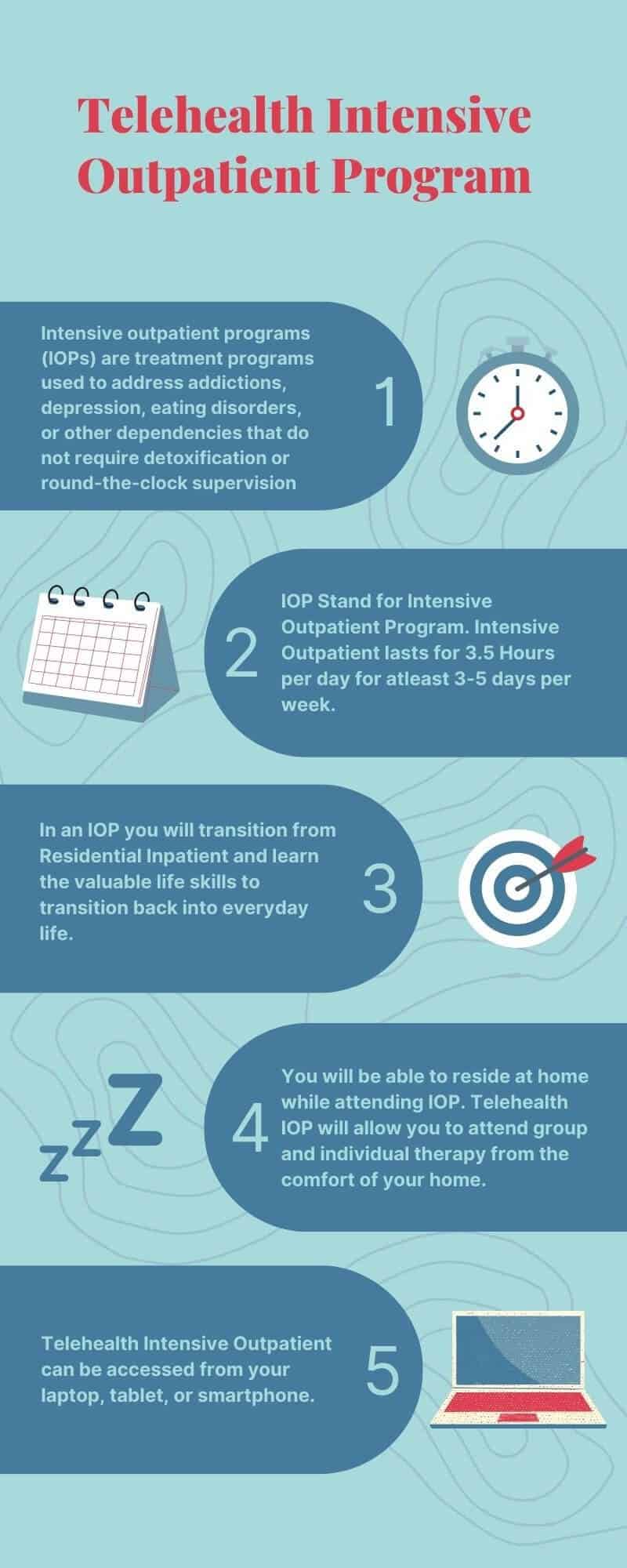Proven Success with Intensive Outpatient Program (IOP) for Substance Abuse Recovery.
Wiki Article
Navigating the Intricacies of Twin Medical Diagnosis Therapy Within an Intensive Outpatient Program Setting
In the realm of psychological wellness and addiction treatment, the crossway of dual medical diagnosis offers a nuanced difficulty that demands an extensive and tailored method. By exploring the details of twin diagnosis treatment within this intensive outpatient context, a more clear course emerges in the direction of holistic and sustainable recuperation for those grappling with these intertwined challenges.Double Diagnosis Introduction

Comprehending twin medical diagnosis is essential as it requires a detailed and integrated strategy to treatment. By recognizing the interplay between material use and psychological wellness, healthcare providers can tailor treatments to meet the special demands of each individual. This holistic strategy not just addresses symptoms but also targets hidden aspects that add to the double medical diagnosis.
Moreover, untreated twin medical diagnosis can bring about a cycle of regression and getting worse mental health signs. By recognizing the intricacy of dual diagnosis and offering specialized care, health care professionals can sustain people in accomplishing long-lasting recuperation and enhanced psychological well-being.
Tailored Therapy Strategies
Identifying the elaborate interaction between substance use disorders and psychological health problems, the development of tailored treatment plans is paramount in attending to the intricacies of twin medical diagnosis in mental health and wellness therapy. Customized therapy plans are personalized techniques that take into consideration the distinct demands, difficulties, and goals of people encountering dual medical diagnosis. These plans are made collaboratively by a multidisciplinary team of experts, consisting of psychiatrists, psycho therapists, social employees, and addiction specialists, to make certain comprehensive and integrated care.Tailored therapy strategies generally entail a combination of treatments, medicines, and behavior treatments that target both the compound use disorder and the mental wellness condition all at once. These strategies may include cognitive-behavioral treatment, dialectical behavior modification, medication-assisted therapy, private therapy, team treatment, and household therapy, to name a few evidence-based treatments. By customizing therapy approaches to individual conditions, customized strategies can attend to the root triggers of double medical diagnosis, advertise long-term healing, and boost general high quality of life for individuals dealing with co-occurring conditions.
Integrated Care Approach
An integrated care strategy in dual medical diagnosis therapy combines clinical, emotional, and social interventions to attend to the intricate needs of people with co-occurring substance use problems and mental wellness conditions. This approach recognizes that treating one aspect of a dual diagnosis without dealing with the various other can cause ineffective end results. By integrating medical treatments such as medicine management for mental health problems with psychological therapies like cognitive-behavioral therapy for substance usage conditions, people receive thorough treatment that targets all facets of their double diagnosis.By integrating social treatments like household therapy, vocational support, and community sources, the therapy becomes much more alternative and tailored to the person's details needs anonymous - Intensive Outpatient Program (IOP). In general, an integrated care technique in dual diagnosis treatment within an extensive outpatient program setup intends to provide detailed, effective, and personalized treatment to individuals encountering co-occurring conditions.
Difficulties in IOP Setting
In the context of twin diagnosis therapy within an extensive outpatient program, navigating the complexities of co-occurring material usage conditions and psychological health conditions provides substantial challenges. Among the key obstacles in the IOP setup is the sychronisation of care between psychological wellness professionals and chemical abuse professionals to make certain a thorough therapy approach. This needs reliable interaction, partnership, and a deep understanding of how these problems engage and affect each various other.
Furthermore, attending to stigma and resistance to therapy within the IOP setting can hinder progression. Some people may be reluctant to divulge their double medical diagnosis or may feel embarrassed, hindering their engagement in the restorative procedure. Getting over these barriers necessitates an encouraging and non-judgmental setting that cultivates trust and visibility.

Collaborative Professional Efforts
Reliable double diagnosis treatment in an extensive outpatient program demands smooth cooperation among psychological health and wellness professionals and drug abuse professionals to make sure an extensive and incorporated approach to care (Intensive Outpatient Program (IOP)). This collaboration is crucial to address the complicated interplay between psychological health disorders and drug abuse, as both aspects require to be treated concurrently for effective end results. Psychological health and wellness specialists bring know-how in detecting and treating mental health and wellness problems, while Get More Information material misuse specialists have actually specialized expertise in attending to dependency concerns. By functioning with each other, these professionals can develop individualized therapy strategies that satisfy the distinct needs of each patient, considering both their visit this site psychological health and chemical abuse obstacles.Collaborative efforts likewise include normal interaction and details sharing amongst staff member to make sure a cohesive treatment approach. This may include case seminars, joint sessions with the person, or shared documentation to track progress and readjust treatment approaches as required. Furthermore, partnership may consist of entailing various other healthcare professionals such as key treatment doctors or household therapists to give holistic support to the client. Inevitably, a united front of professionals interacting improves the efficiency of twin diagnosis therapy within an extensive outpatient program.
Conclusion
Finally, efficient double medical diagnosis treatment within an extensive outpatient program setup calls for customized treatment plans and an integrated care technique. Obstacles might develop in this setting, but collaborative initiatives amongst specialists can assist navigate these complexities. By resolving the unique needs of people with co-occurring psychological health and wellness and substance use problems, IOP programs can give thorough and alternative care to support recovery and total wellness.Report this wiki page